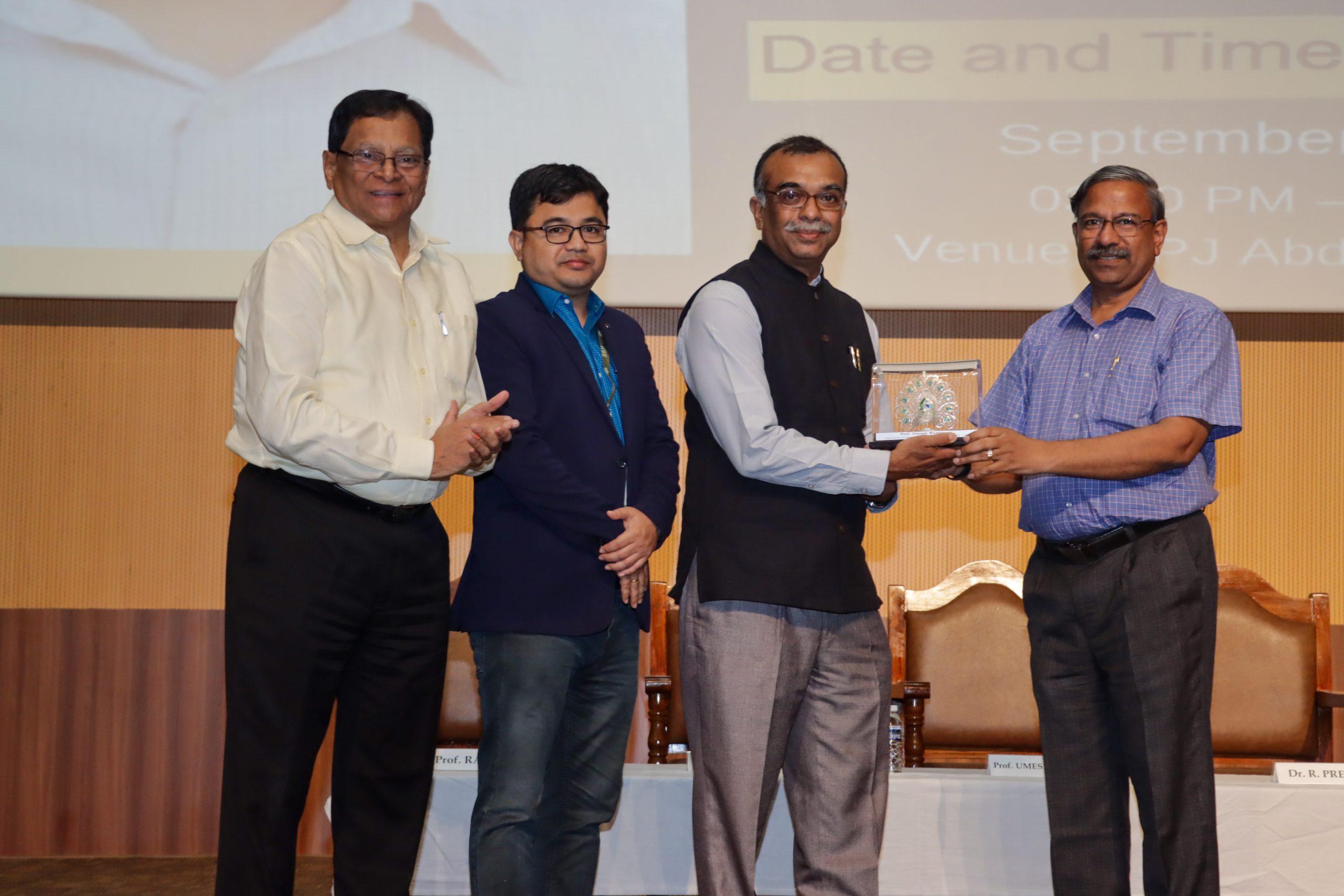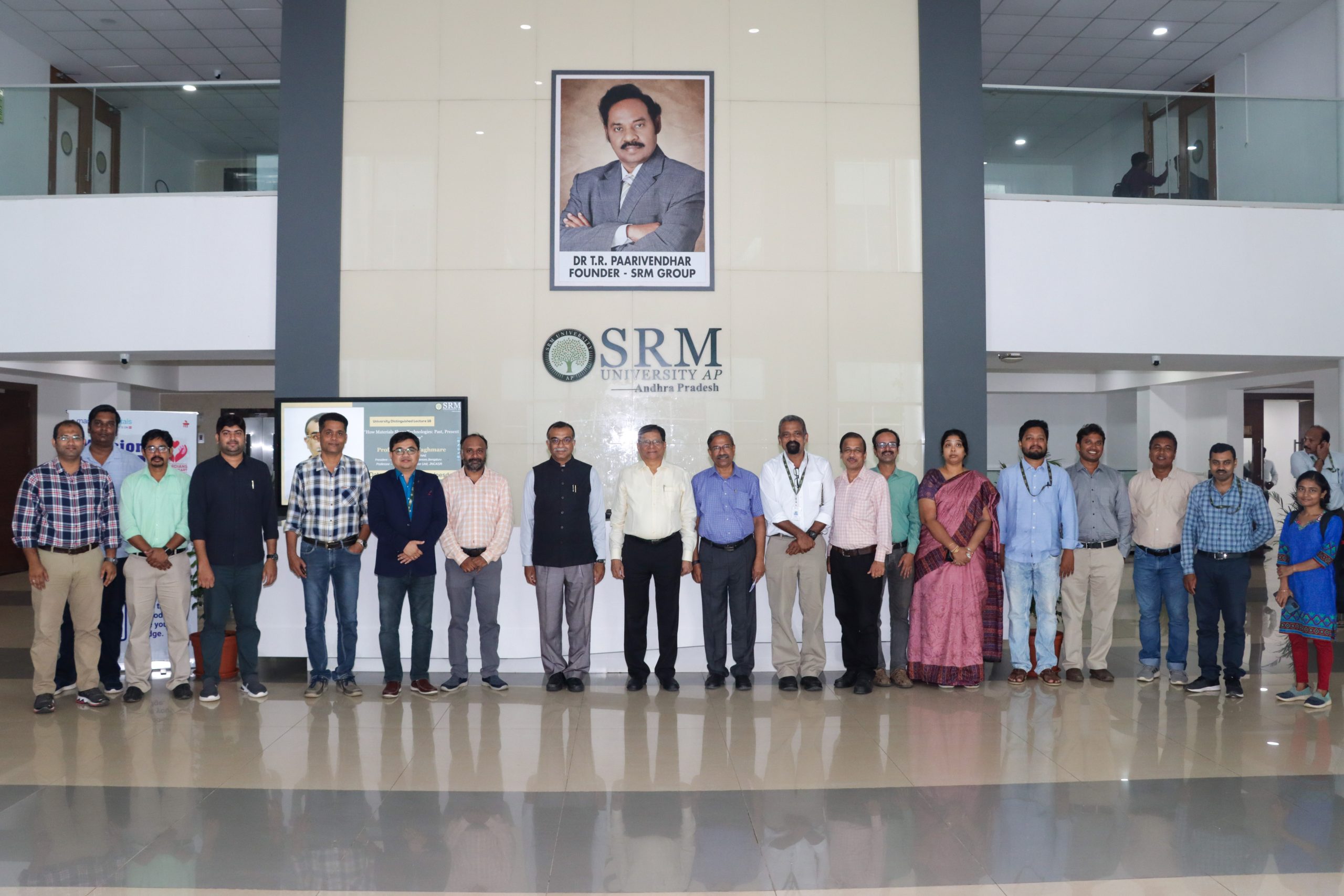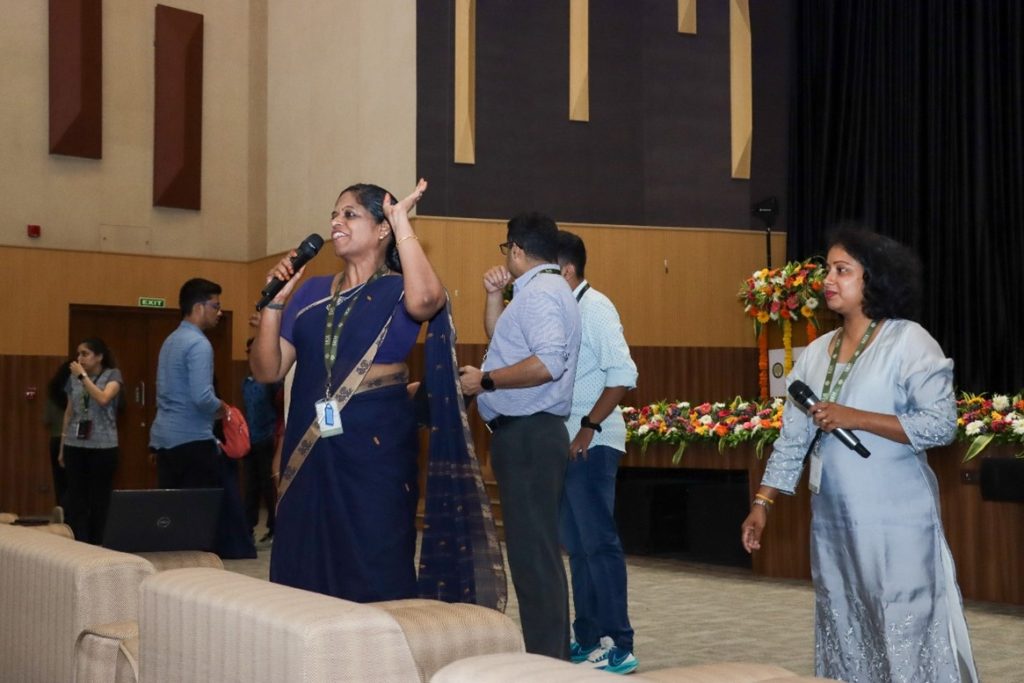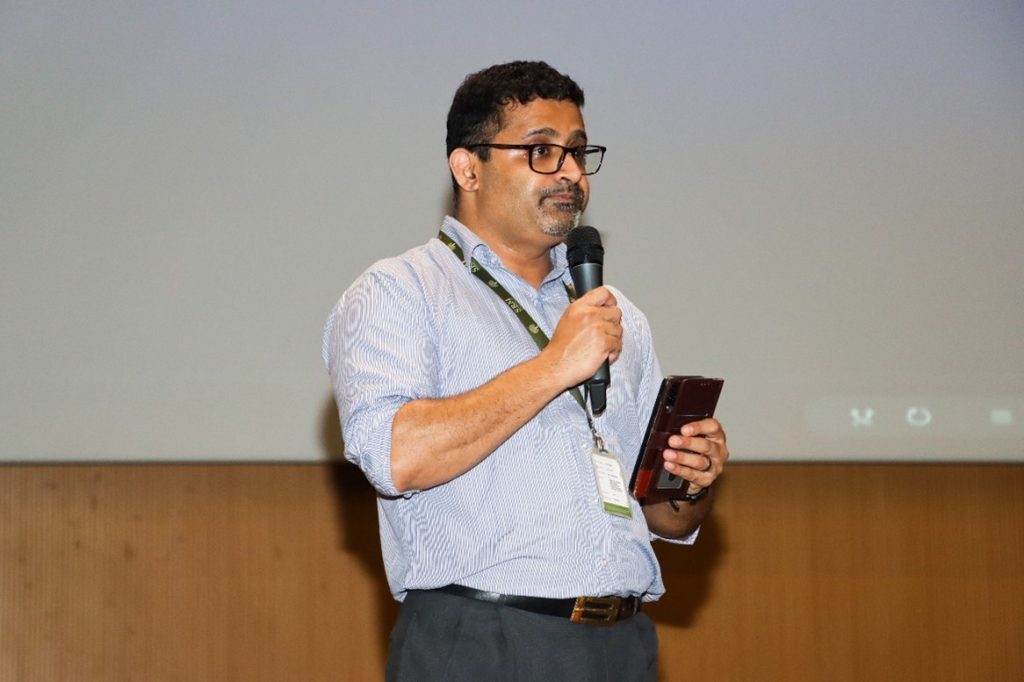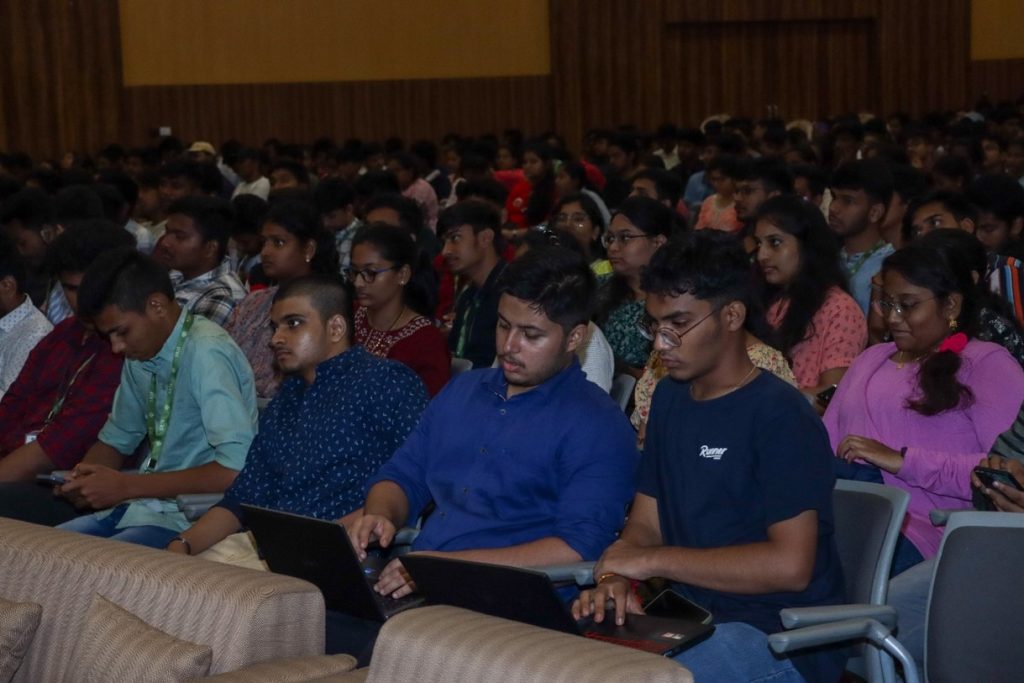IASc President Delivers the UDL and Inaugurates Centre of Excellence
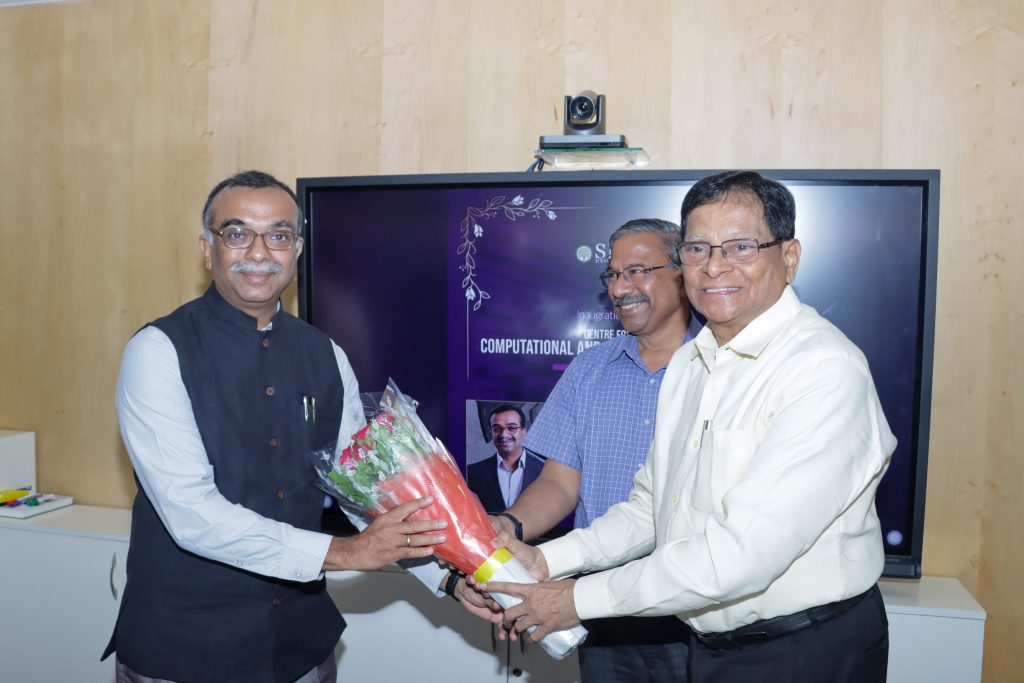
SRM University-AP welcomed Prof. Umesh V Waghmare, President – Indian Academy of Sciences, Bengaluru on the momentous occasion of the inauguration of the Centre for Computational and Integrative Sciences and as the keynote speaker of the 16th University Distinguished Lecture held on September 27, 2023. The institute launched its eighth Centre of Excellence that embraces true interdisciplinary collaboration in alignment with the mission of SRM University-AP. Prof. Waghmare acknowledged the tremendous research infrastructure of the institute that intensifies and cultivates research, innovation, and entrepreneurial spirit on campus. The Centre which is a dedicated platform for computational research, was launched in the presence of Prof. V S Rao, Advisor; Dr R Premkumar, Registrar; Prof. Ranjit Thapa, Dean-Research, Dr. Mahesh Kumar Ravva, Co-ordinator of the center, and faculty of SRM University-AP.
Prof. Waghmare also delivered an insightful session on “How Materials Shape Technologies: Past, Present and Future” as part of the 16th edition of the University Distinguished Lecture Series organised by the institute. “Material Science is an interdisciplinary field of science that witnesses the confluence of natural sciences and engineering. The history of materials (its processing) influences its structure and thus the material’s properties and performances. These diversified materials have influenced humankind significantly from the beginning of our civilization to the 21st century”, stated Prof. Waghmare in his lecture. He also expounded on how materials have been the key to technological revolutions, the impact of Quantum Physics in Material Science and combating present challenges to energy and environment through modern materials and technologies.
Prof. V S Rao, Advisor stated that the primary aim of the University Distinguished Lecture series is to inspire research scholars and students to engage in innovative initiatives that contribute to the comprehensive advancement of our nation. The lecture successfully concluded with a Q&A session and a vote of gratitude. A memento was presented to Prof. Umesh Waghmare as a token of appreciation by Dr R Premkumar.
- Published in News, University Distinguished Lecture
SRM AP Educators Accredited with Cambridge Certification
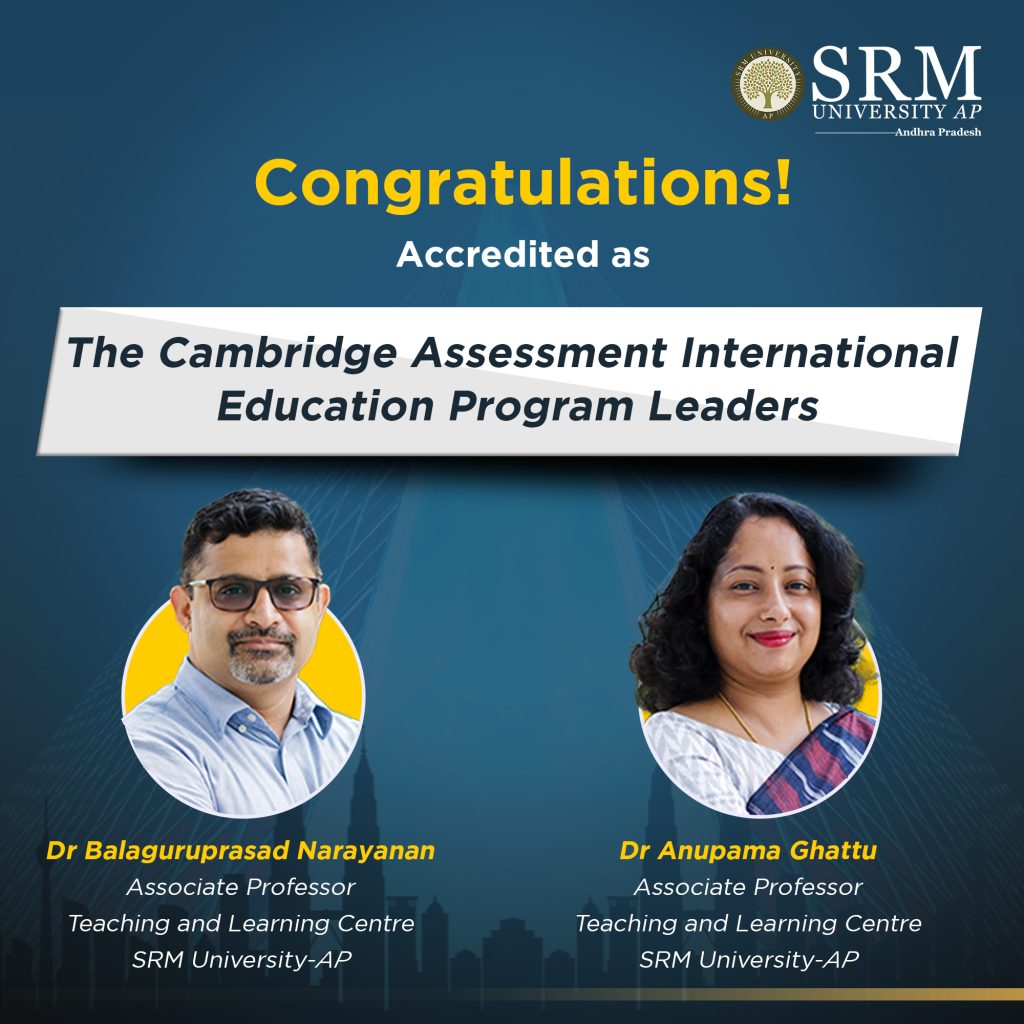
SRM University-AP educators, Dr Balaguruprasad Narayanan and Dr Anupama Ghattu from the Teaching and Learning Centre are now accredited facilitators under The Cambridge Assessment International Education Program Leaders. The Duo have earned their specialisations in the Teaching and Learning Program & Teaching with Digital Technologies Program respectively.
The certification will enable the educators to provide the faculty and students with specialised competency in teaching and learning mechanisms, it will also facilitate student learning experiences. Following this accreditation, the programme leaders through TLC are planning to guide SRM University-AP faculty members for International Cambridge Certification in one of the above-mentioned programmes of their choice.
Congratulations to Dr Ghattu and Dr Narayanan!
- Published in Departmental News, Faculty Achievements, News, TLC
Skills Diagnostics Assessments For AY 2023-24
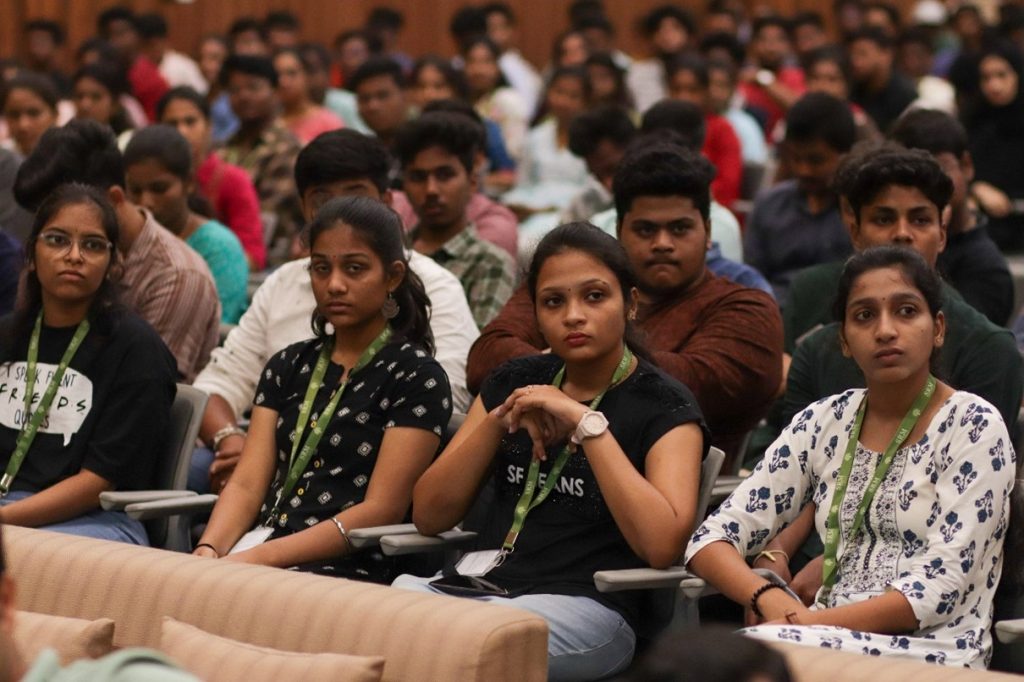
The Teaching and Learning Centre along with The Directorate of Corporate Relations & Career Services conducted Diagnostic Skills Assessments for Freshman undergraduate students for AY 2023-24 from August 17, 2023 – August 19, 2023, during the Freshman Orientation Programme.
The main objective of the diagnostic assessments was to identify individual students’ knowledge, skills, strengths, and potential areas of growth in English, Aptitude, Math, C Programming, Physics, Chemistry and Biology. It is primarily used to identify and address learning gaps to meet their learning needs. Furthermore, it will also help in tracking student achievements throughout their learning process. The assessment data will be used for differentiated instruction among other techniques in the classroom to foster student learning.
- Published in Departmental News, News, TLC
ICSSR Sanction for Research Project on PM Krishi Sinchai Yojana
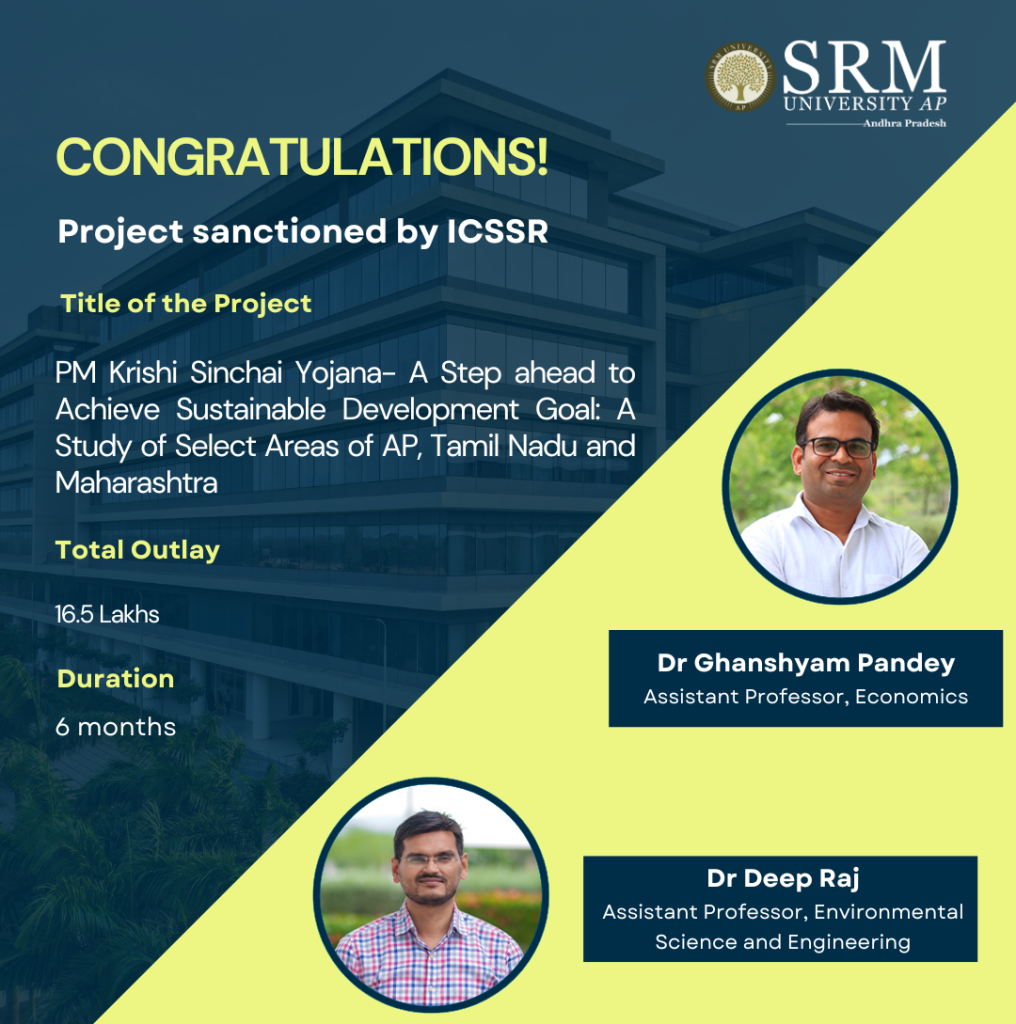
SRM University-AP takes pride in the achievements of its students and faculty. Dr Ghanshyam Pandey, Assistant Professor, Department of Economics and Dr Deep Raj, Assistant Professor, Department of Environmental Science and Engineering were sanctioned a project by the Indian Council of Social Science Research, New Delhi (ICSSR). The research project titled, “PM Krishi Sinchai Yojana- A Step Ahead to Achieve Sustainable Development Goal: A Study of Select Areas of AP, Tamil Nadu and Maharashtra” was sanctioned a total outlay of 16.5 Lakhs for a period of 6 months.
Abstract
Agriculture in India is dominated by smallholders. Yet only about 55% of India’s agricultural land is irrigated. The frequent occurrence of extreme climate events such as drought and heat are some of the main reasons for low agricultural productivity, food insecurity, and persistent poverty in developing nations. In this respect, irrigation plays a significant role in addressing climate change. However, irrigation costs are also very high for small-scale farmers because of their low incomes. Therefore, they do not have the resources to irrigate 100% of their land. In this context, PMKSY is a step towards resolving this problem in India and was introduced by the NDA government in 2015 by Har Khet Ko Pani. Therefore, the present study will examine the coverage, impact, adaptation and constraints of PMKSY in the Indian states of Andhra Pradesh, Tamil Nadu and Maharashtra.
Congratulations on this remarkable achievement!
- Published in Departmental News, Economics News, ENVS News, News, Research News


